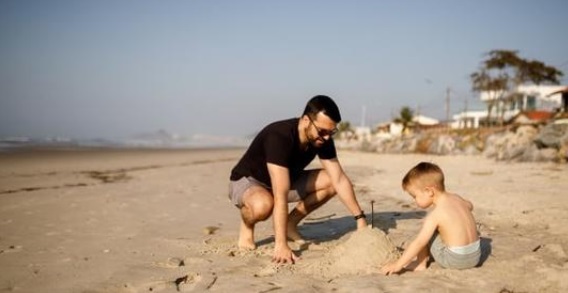Fathers who have had difficult childhood experiences can be good fathers, successfully trying to be a better parent than their own parents were.
Fathers who have had difficult family experiences during their own childhood can be good fathers, successfully trying to be a better parent than their own parents were. But not all of these fathers succeed, with the risk of being abusive or not present in the life of their children.
In a current ongoing study of fathers with difficult life situations we are interviewing men who have been placed in out-of-home care during their own childhood. We find that more than half of them are living together with their children or have regular contact including weekend stay-overs. The other half are not seeing their children and many regret this.
We find that fathers with childhood traumas like abuse and neglect are more likely to have difficulties – lower levels of education and income, and higher symptoms of psychological distress, including alcohol and substance abuse. “More likely to” does not mean all fathers – indeed, other studies show that abusive behavior by parents only appears in about a third of the cases where parents had traumatic childhood experiences themselves (e.g. Sperry & Widom, 2013).
Similar results can also be found in another study I led where young adults being brought up in group-home settings in their childhood also show more insecure concepts of attachment relationship, together with higher levels of psychological stress (Nowacki & Schoelmerich, 2010). The German child care system is a bit different than, for example, the English system, with different out-of home care settings including group homes for children and young people (Simpson & Nowacki, 2014).
When asked about their understanding of fatherhood, the fathers we interviewed mostly emphazise how much they want to be a better parent in comparison to their own. Next to a traditional idea of fathers being the bread-earner of the family, they also report more modern ideas of sharing caring duties with the mother and being a good partner and husband. They think that their children like it most when they are actively playing together, including rough-and tumble play, but also teaching situations like learning how to ride a bike, explaining various topics and enjoying sports.
Fathers who are regularly seeing their children feel much closer to them then those living separately and are having litte contact with them.
Written by: Professor Dr. Katja Nowacki.
This article was originally published on The Good Men Project.
